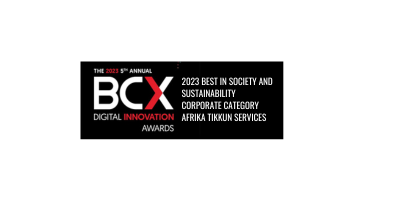Corporates play a decisive role in nurturing strong SME sector
There has been a lot of talking about how we can and should help our country’s small and medium-sized enterprises (SMEs) flourish, thrive, grow, and create more jobs. The sector has, after all, been hit the hardest by last year’s recession, subsequent Covid-19 pandemic and finally, the tidal wave of unrest that ravaged parts of the country in July.
The stats don’t leave much to the imagination. According to the Small Enterprise Development Agency (Seda), the number of smaller ventures in SA has dropped by 11% between the third quarter of last year and the same period in 2019, from 2.65-million to 2.36-million companies. Of the 290,000 businesses that closed within that period, 232,000 were liquidated in the second quarter, coinciding with SA’s hard lockdown.
In addition, the Seda estimates the SME sector accounted for 90% of all jobs the country lost between quarter three of 2019 and quarter three of 2020. This translates to a 14% SME employment decrease. This is nothing short of a catastrophe, as smaller and medium-sized companies generate about 70% of all new jobs SA creates annually.
SMEs have also been hit hard by the violent unrest in Gauteng and KwaZulu-Natal. New data by the BeyondCovid survey estimates 89% of businesses affected by the unrest fell into the small and medium categories. A large chunk of that group comprises ventures operating in the affected townships, including salons, small grocers, and cafes.
These are undoubtedly scary statistics, knowing that once a small business closes it often closes for good. Many entrepreneurs, especially from vulnerable areas, do not have the funds to start over, especially in today’s economic climate. That means that once an SME job is gone, it is truly gone.
The saddest part is that the pandemic and riots are not the main causes of our SMEs’ woes. These companies have always faced many challenges. To give you an idea, before Covid-19 reached our shores 70% of small businesses started in this country didn’t make it beyond their first birthday.
If we want to create jobs, strengthen our economy and make a solid dent in our frightening poverty levels, we need to start walking together and stop talking in silos. Despite the dozens of blueprints, white papers, action plans, task forces, commissions, committees and summits we have seen over the past 20-odd years, not much has changed. The hard truth is that nothing will change if we continue our business-as-usual approach.
While consumers and the government certainly have a role to play in supporting small businesses and helping them grow, I believe the private sector, larger and established companies, in particular, needs to come to the table, too. They have the resources to do so.
Getting involved in improving the plight of SMEs should go beyond the need to comply with BEE regulations, and it shouldn’t be seen as a philanthropic exercise or expense either. Helping small business owners, often your suppliers and suppliers of your suppliers, become more resilient is an investment, not just in their ventures but in yours too.
First, research has shown that a country’s national economy benefits tremendously from a diverse, strong, and resilient SME sector. In emerging economies like SA, SMEs contribute up to 40% of GDP, the World Bank has found. In other words, the more smaller and medium-sized enterprises we have, and the stronger they are, the larger our GDP. This benefits every one of us, from employers and employees to small and large business owners and investors.
Second, SMEs tend to be suppliers of and service providers to large and established firms. Every time a smaller business goes under, their clients’ and off-takers’ supply chains are disrupted. By investing in SMEs and helping them navigate the storms better, corporations are investing in their own businesses’ continuity and future.
Finally, because smaller companies are employment creation powerhouses and SA is in dire need of jobs, we need to do everything in our power to keep the SMEs we have, grow their numbers, and help them become resilient. This will result in more jobs, which benefits everyone, starting with the government. The fewer unemployed people, the less pressure on social security networks, state facilities, and less idle minds that are prone to crime, drugs and gangsterism, ensuring our communities are safer for all. This also frees up money that can be spent on, for instance, improving our healthcare and education systems.
The corporate sector is another key benefactor from more jobs: the more people earn an income, the lower the country’s overall poverty and hunger rates and the less risk we have of disruptive, violent, and very costly waves of social unrest like we have seen recently — and will continue to see in the future if we don’t play our cards right, right now.
As you think about what you or your company can do to make our country better and be part of the solution, consider strategically how you can use your enterprise and/or supplier development (ESD) investment to build/rebuild small businesses in your ecosystem and within communities that you operate.
Will it be easy? No, but that doesn’t mean it is unfeasible. As Nelson Mandela once said: “It always seems impossible until it’s done.”


